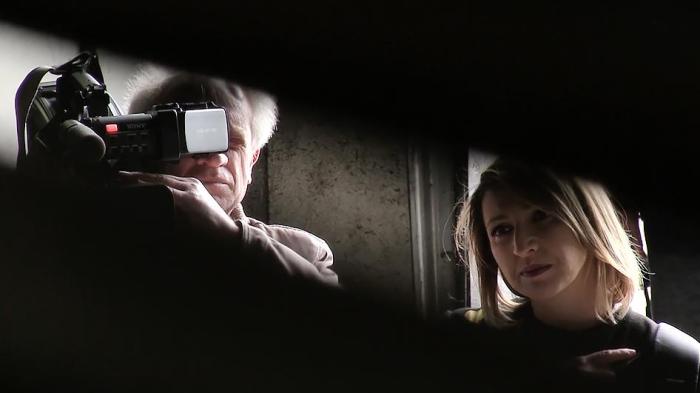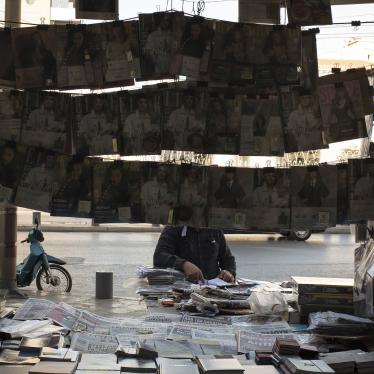(Brussels) – Journalists in the Western Balkans work in a hostile environment that directly affects their ability to do critical, independent reporting essential to a democratic society, Human Rights Watch said in a report released today. Authorities in Bosnia and Herzegovina, Kosovo, Montenegro, and Serbia should take immediate steps to create safe working conditions for the media and to end impunity for crimes against journalists.
The 69-page report, “A Difficult Profession: Media Freedom Under Attack,” documents physical attacks and threats, including death threats, punitive lawsuits, and smear campaigns targeting journalists in Bosnia and Herzegovina, Kosovo, Montenegro, and Serbia. The report is based on interviews with 86 journalists, most of whom report on sensitive issues such as war crimes and corruption, in the four Western Balkan countries. Human Rights Watch also documented several cases of cyberattacks against online media outlets critical of the governments. None of the countries are adequately investigating or prosecuting the attacks on journalists, Human Rights Watch found.
“The Western Balkan countries have been touting their move toward democracy for two decades, but intimidation and attacks on journalists puts a damper on democracy,” said Lydia Gall, Balkans and Eastern Europe researcher at Human Rights Watch. “The EU should push the Western Balkan countries to call a halt to intimidation and prosecute crimes against journalists as part of the EU membership negotiation process.”
Authorities in the Western Balkan countries have an obligation to protect journalists and create a safe environment where they can freely report without government interference, Human Rights Watch said. This is particularly crucial in a fragile region like the Western Balkans, with its recent history of violent wars in which authorities used the media as a propaganda tool. While much has changed, the atmosphere for media in many parts of the Western Balkans is still characterized by danger and hostility rather than improving as part of the region’s democratic development, Human Rights Watch found.
Štefica Galić, editor-in-chief of an online news site in southern Bosnia and Herzegovina, was violently assaulted on the street in 2012 as she prepared to screen a documentary about her late husband, with whom she had saved Bosnian Muslims from being deported to concentration camps during the war. In the days before the attack, Galić had reported death threats but the police had told her not to take them seriously.











